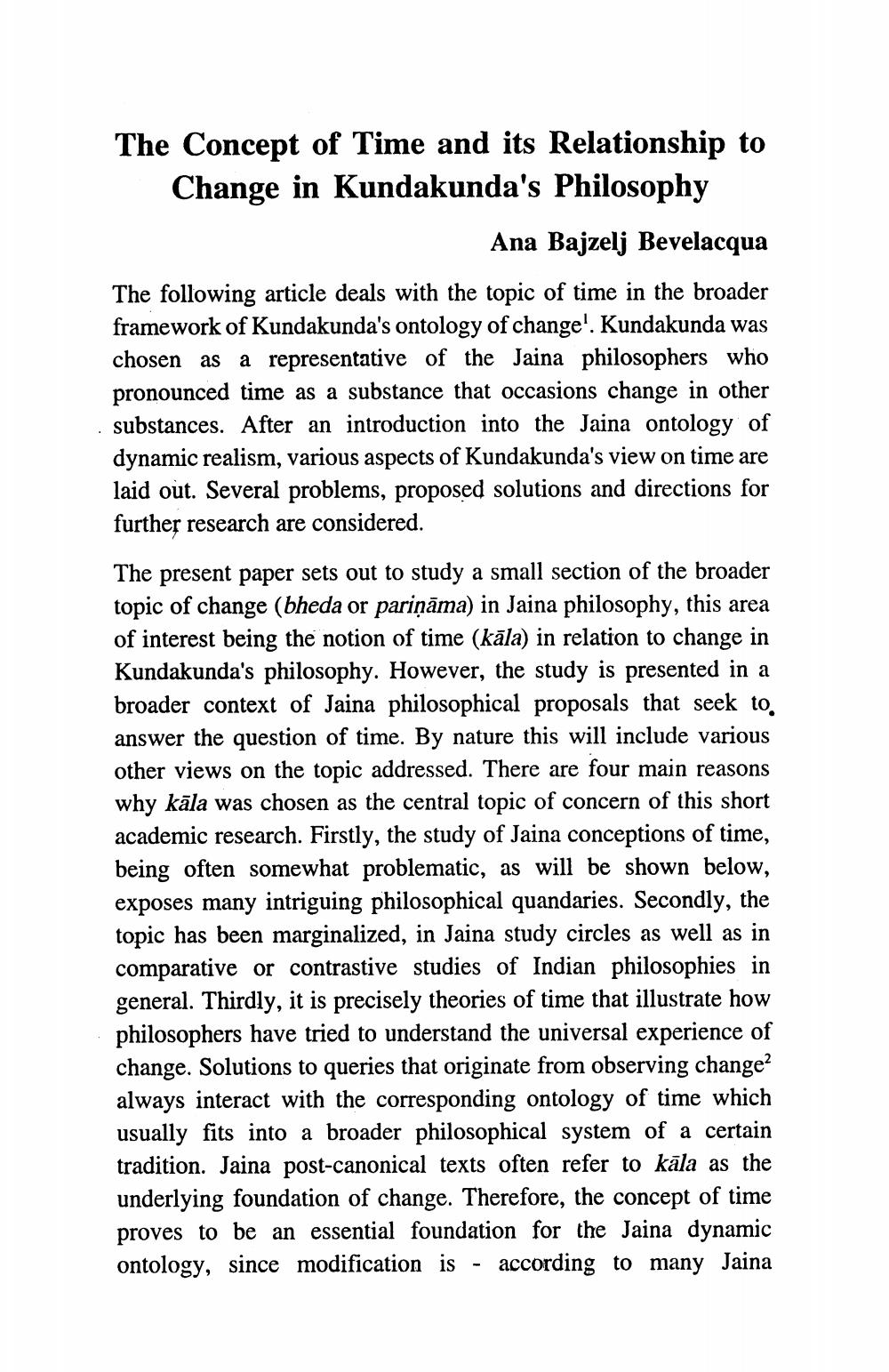________________
The Concept of Time and its Relationship to Change in Kundakunda's Philosophy
Ana Bajzelj Bevelacqua
The following article deals with the topic of time in the broader framework of Kundakunda's ontology of change'. Kundakunda was chosen as a representative of the Jaina philosophers who pronounced time as a substance that occasions change in other substances. After an introduction into the Jaina ontology of dynamic realism, various aspects of Kundakunda's view on time are laid out. Several problems, proposed solutions and directions for further research are considered.
The present paper sets out to study a small section of the broader topic of change (bheda or pariṇāma) in Jaina philosophy, this area of interest being the notion of time (kāla) in relation to change in Kundakunda's philosophy. However, the study is presented in a broader context of Jaina philosophical proposals that seek to answer the question of time. By nature this will include various other views on the topic addressed. There are four main reasons why kāla was chosen as the central topic of concern of this short academic research. Firstly, the study of Jaina conceptions of time, being often somewhat problematic, as will be shown below, exposes many intriguing philosophical quandaries. Secondly, the topic has been marginalized, in Jaina study circles as well as in comparative or contrastive studies of Indian philosophies in general. Thirdly, it is precisely theories of time that illustrate how philosophers have tried to understand the universal experience of change. Solutions to queries that originate from observing change2 always interact with the corresponding ontology of time which usually fits into a broader philosophical system of a certain tradition. Jaina post-canonical texts often refer to kāla as the underlying foundation of change. Therefore, the concept of time proves to be an essential foundation for the Jaina dynamic ontology, since modification is according to many Jaina
-




